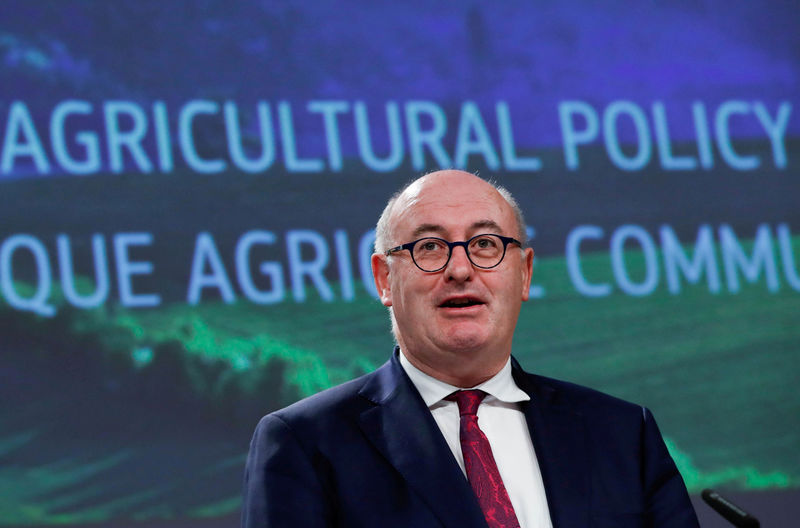TOKYO (Reuters) - The European Union intends to keep agriculture off the agenda in its trade talks with the United States and continues to support rules-based, open and predictable international commerce, the EU's agriculture commissioner said on Friday.
A free trade agreement between the European Union and Japan is the "benchmark and ceiling" for the EU's negotiations with the United States for a trade pact, Phil Hogan said.
Hogan, a former Irish government minister, also urged the United States to reverse tariffs on goods from China and the EU and return to a more "benign" system of global trade.
"Agriculture should be excluded from negotiations with the United States," Hogan said.
"The fact that the European Union and Japan have a very good agreement will operate as the benchmark ... to what is achievable between the EU and the United States."
Hogan, who spoke to journalists at a press conference, is in Japan for a Group of 20 agriculture ministers' meeting.
The EU indicated last month it is ready to start talks with the United States on only two areas: cutting tariffs on industrial goods and making it easier for companies to show products meet EU or U.S. standards.
This stance puts Brussels at loggerheads with Washington, which has insisted on including farm products in the talks.
U.S. President Donald Trump's administration is seeking better terms of trade with the EU, as well as China, Japan, Canada and Mexico.
In some cases the U.S. has raised tariffs on goods in response to trade practices it considers unfair, which has roiled financial markets and slowed the global economy.
The EU is already facing U.S. tariffs on its steel and aluminum exports and the threat of higher U.S. tariffs on products ranging from large commercial aircraft and parts to dairy products and wine.
The U.S. will also increase duties on $200 billion of Chinese goods to 25 percent from 10 percent later on Friday as it negotiates with China for a trade pact.
In response to questions about U.S.-China talks, Hogan said cooperation is better than confrontation for global trade.

Earlier this year, a trade pact between the EU and Japan went into effect, creating the world's largest open market.